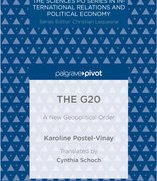Transforming South Asia: Imperatives for Action

South Asia is certainly in need of transformation. Riven by border disputes, home to two nuclear powers (with a third on its doorstep), riddled with chronic low intensity conflicts, in economic terms poor and poorly-integrated, as well as politically unstable, it is the region that faces the most challenges in the contemporary world.
This book brings together eleven papers by a series of regional experts assembled by the Indian Council on World Affairs and the Association of Asia Scholars. Their principal focus is the role that the South Asian Association for Regional Cooperation might play in bringing about change in the region but they range across a number of other issues. The future of Afghanistan – and what regional states might do to support it – looms large, with three chapters on this topic. There are also essays on migration and on terrorism as well as an intriguing piece on India-Pakistan relations by Associate Professor Huma Baqai. There are chapters on SAARC itself and on regional integration which present a series of proposals for change.
Students of South Asia, as well as practitioners, will find much to engage them in this volume. The essays vary in quality but most are insightful. As with most writing on SAARC and regionalism in South Asia, the essays on that topic are generally more aspirational than anything else and this may frustrate some readers. It is one thing to observe, as Indian writers in particular often do, that there is a complex web of civilizational ties that bind the region together in cultural and social terms but quite another to translate those links into substantive political and economic agreements. The authors of these chapters mostly acknowledge the scale of the challenge and their proposals tend to be more realistic than not.
Rajiv Bhatia, Swaran Singh and Reena Marwah (eds.), Transforming South Asia: Imperatives for Action, KW Publishers and Indian Council on World Affairs, New Delhi, 2013
Reviewed by Dr Ian Hall, Senior Fellow, The Australian National University




